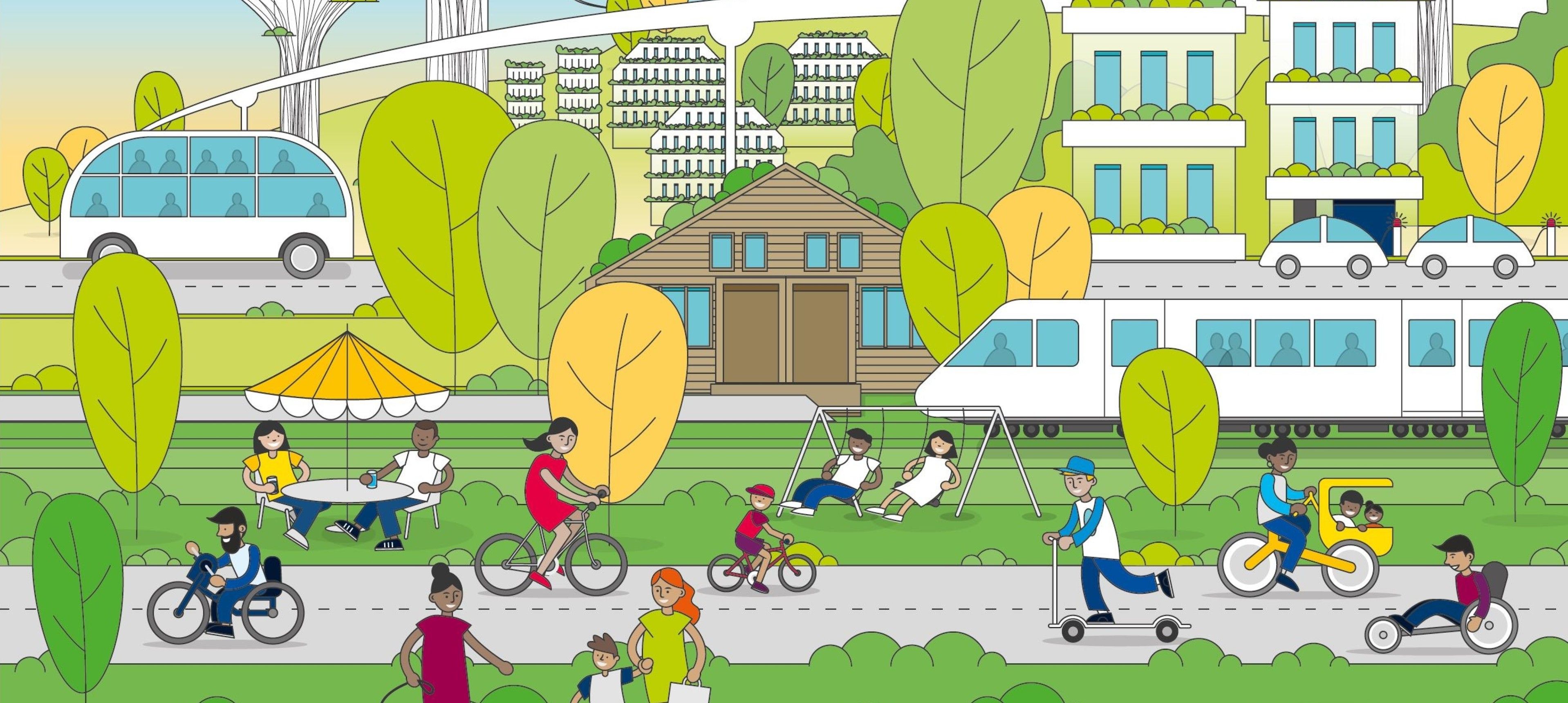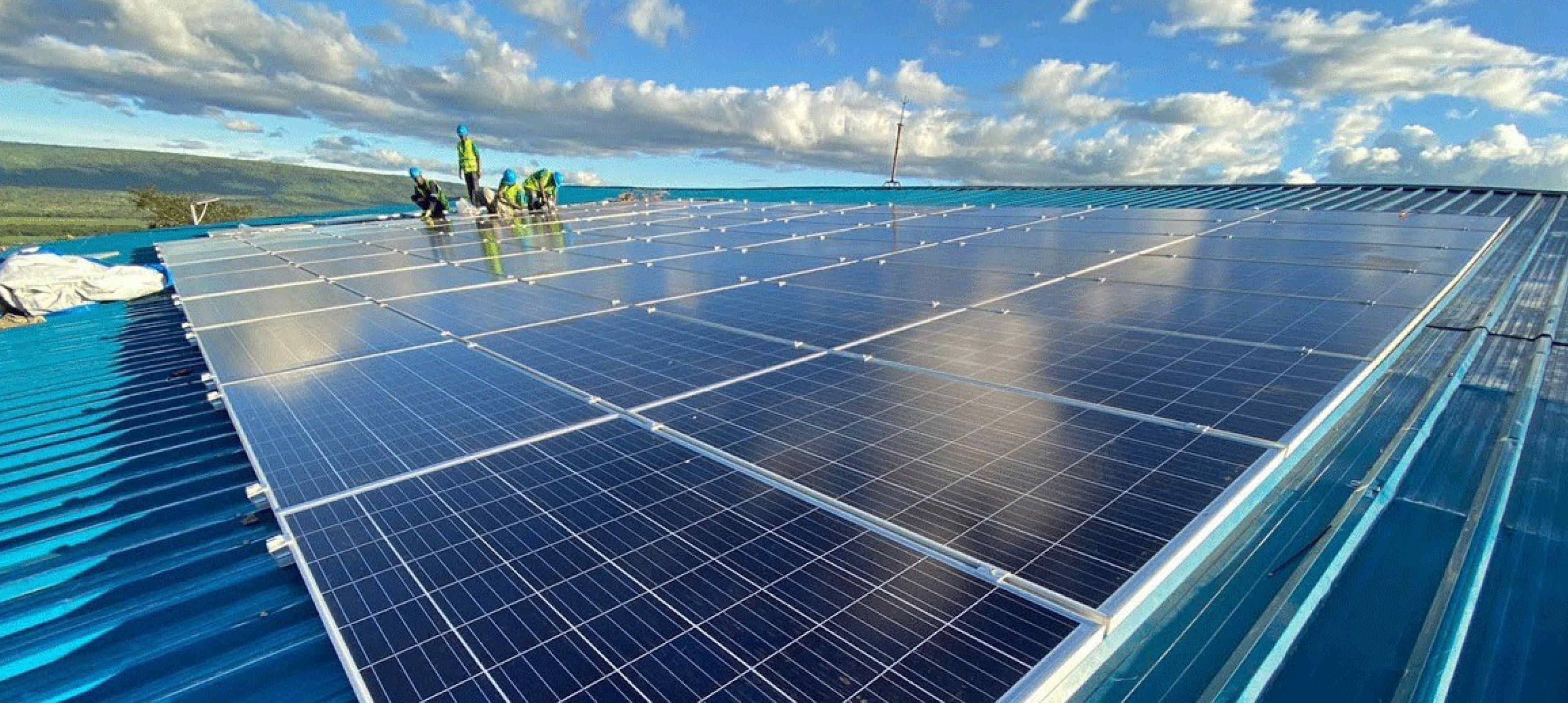Energy and Low-Carbon Futures
Technologies have the potential to deliver efficient, low-carbon, resilient energy systems, transport and buildings. Improvements in cost and performance are surpassing expectations in areas such as solar power, wind farms and electrical battery storage, thanks to advances in research and development. Imperial’s involvement in large-scale experiments, demonstration projects, and national research programmes are expected to help the UK advance its low-carbon industries and successfully bring about a low-carbon future with clean and accessible energy technologies.
The shift to a low-carbon future

The Carbon Budget - what is it and why is it important?
Animation showing what the carbon budget is
Researchers at Imperial's Grantham Institute developed this animation to explain what the carbon budget is, and why the world needs to take drastic action to cut emissions of greenhouse gases.

How can taking action on climate change improve our lives
What are the co-benefits of action on climate change?
Action on climate change can simultaneously help to address other issues faced by society – improving air quality and public health, reducing NHS costs, creating jobs, improving energy security and preserving the natural environment.

Towards a just and equitable low-carbon energy transition
How can we ensure a just & equitable transition to a low-carbon economy?
The transition to a low-carbon economy is gathering pace. How can we ensure it is a just & equitable energy transition for all?

The future we see
The future we see is a sustainable, resilient, zero-carbon society.
The Grantham Institute is working with policymakers, business leaders and researchers to help make the transition to a sustainable, resilient, zero-carbon society.
Achieving a zero-carbon future
The Grantham Institute has a dedicated, in-house, group of researchers carrying out interdisciplinary research on topics related to the reduction of greenhouse gas emissions. This team of physicists, economists, social and natural scientists, modellers and engineers are able to prioritise research with direct relevance to policymakers and decisionmakers, maximising the impact our research has.
Academics / Publications
Academic Expertise
Explore our directory of Imperial academics who are working in:
Publications
Grantham Institute briefing papers provide background and advice on key climate change and environment issues.
Read Grantham Institute publications about energy and low-carbon futures.
Hear from the experts

China's energy technologies to 2050
Professor Ajay Gambhir on China's energy technologies to 2050
Senior Policy Research Fellow, Mr Ajay Gambhir, discusses China's carbon dioxide emissions and the challenges and opportunities the country faces in transitioning to a low-carbon energy system.

Developments in solar photovoltaic technology
Professor Jenny Nelson on developments in solar photovoltaic technology
Professor Jenny Nelson discusses developments in solar photovoltaic technology, its role in climate change mitigation and the uptake of solar power across the globe.

Halving global carbon dioxide emissions by 2050
Professor Nilay Shah on halving global carbon dioxide emissions by 2050
Professor Nilay Shah discusses the need to reduce global carbon dioxide emissions and some of the technologies needed as we transition towards a low carbon energy system.

Negative emissions technologies
Professor Nilay Shah on negative emissions technologies
Professor Nilay Shah discusses negative emissions technologies and how they could contribute to climate mitigation efforts.

Reducing carbon dioxide emissions from industry
Dr Tamaryn Napp discusses reducing carbon dioxide emissions from industry
Dr Tamaryn Napp discusses global industrial carbon emissions and how they could be reduced.













--tojpeg_1574858620006_x4.jpg)






